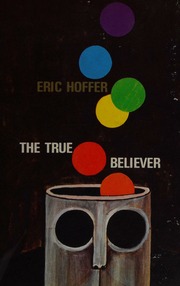
The True Believer
References and Quotes
True believers are only one component of American schooling, as a fraction probably a small one, but they constitute a tail that wags the dog because they possess a blueprint and access to policy machinery, while most of the rest of us do not. The true believers we call great educators— Komensky, Mather, Pestalozzi, Froebel, Mann, Dewey, Sears, Cubberley, Thorndike, et al.— were ideologues looking for a religion to replace one they never had or had lost faith in. As an abstract type, men like this have been analyzed by some of the finest minds in the history of modern thought—Machiavelli, Tocqueville, Renan, William James to name a few—but the clearest profile of the type was set down by Eric Hoffer, a one-time migrant farm worker who didn’t learn to read until he was fifteen years old. In The True Believer, a luminous modern classic, Hoffer tells us: